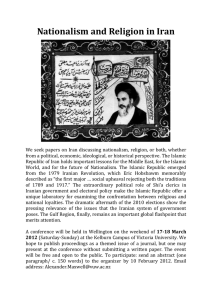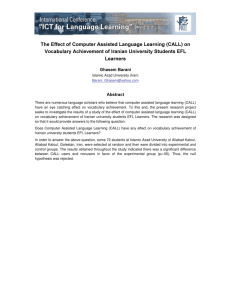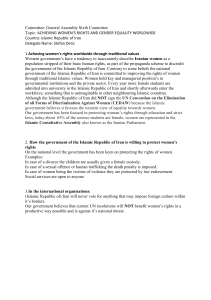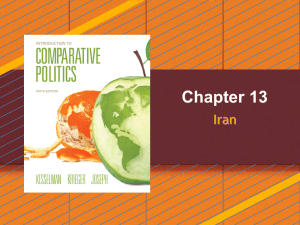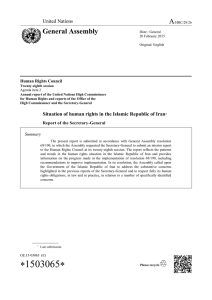Activity 11. Political Islam in Iran in the 20th Century Source: Background:
advertisement
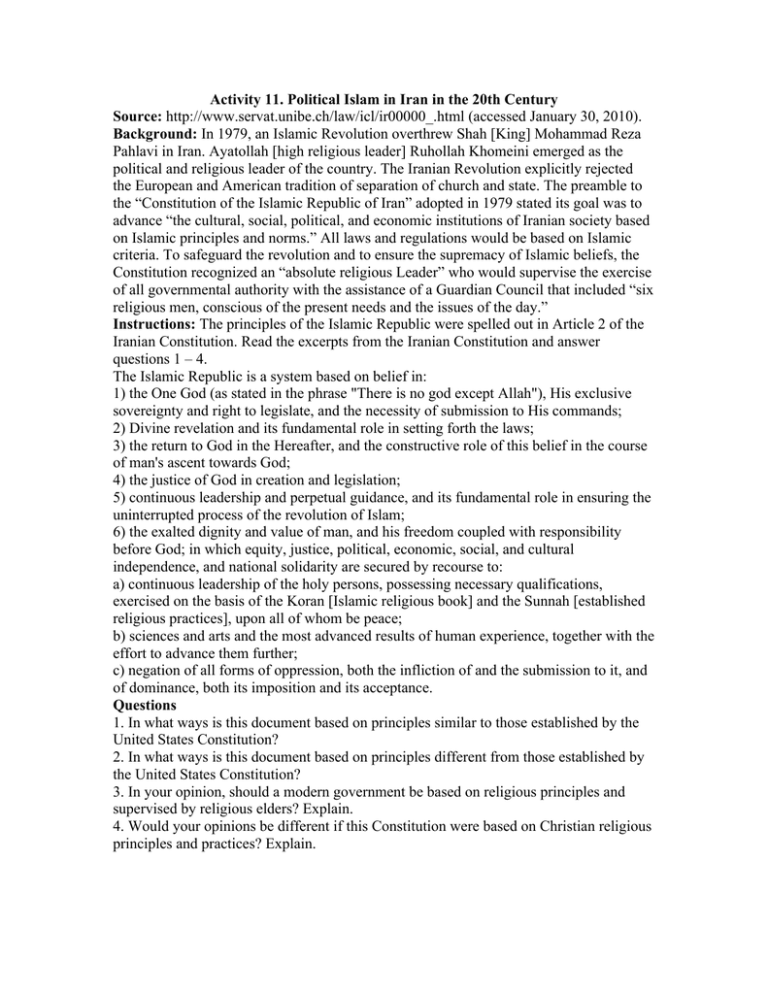
Activity 11. Political Islam in Iran in the 20th Century Source: http://www.servat.unibe.ch/law/icl/ir00000_.html (accessed January 30, 2010). Background: In 1979, an Islamic Revolution overthrew Shah [King] Mohammad Reza Pahlavi in Iran. Ayatollah [high religious leader] Ruhollah Khomeini emerged as the political and religious leader of the country. The Iranian Revolution explicitly rejected the European and American tradition of separation of church and state. The preamble to the “Constitution of the Islamic Republic of Iran” adopted in 1979 stated its goal was to advance “the cultural, social, political, and economic institutions of Iranian society based on Islamic principles and norms.” All laws and regulations would be based on Islamic criteria. To safeguard the revolution and to ensure the supremacy of Islamic beliefs, the Constitution recognized an “absolute religious Leader” who would supervise the exercise of all governmental authority with the assistance of a Guardian Council that included “six religious men, conscious of the present needs and the issues of the day.” Instructions: The principles of the Islamic Republic were spelled out in Article 2 of the Iranian Constitution. Read the excerpts from the Iranian Constitution and answer questions 1 – 4. The Islamic Republic is a system based on belief in: 1) the One God (as stated in the phrase "There is no god except Allah"), His exclusive sovereignty and right to legislate, and the necessity of submission to His commands; 2) Divine revelation and its fundamental role in setting forth the laws; 3) the return to God in the Hereafter, and the constructive role of this belief in the course of man's ascent towards God; 4) the justice of God in creation and legislation; 5) continuous leadership and perpetual guidance, and its fundamental role in ensuring the uninterrupted process of the revolution of Islam; 6) the exalted dignity and value of man, and his freedom coupled with responsibility before God; in which equity, justice, political, economic, social, and cultural independence, and national solidarity are secured by recourse to: a) continuous leadership of the holy persons, possessing necessary qualifications, exercised on the basis of the Koran [Islamic religious book] and the Sunnah [established religious practices], upon all of whom be peace; b) sciences and arts and the most advanced results of human experience, together with the effort to advance them further; c) negation of all forms of oppression, both the infliction of and the submission to it, and of dominance, both its imposition and its acceptance. Questions 1. In what ways is this document based on principles similar to those established by the United States Constitution? 2. In what ways is this document based on principles different from those established by the United States Constitution? 3. In your opinion, should a modern government be based on religious principles and supervised by religious elders? Explain. 4. Would your opinions be different if this Constitution were based on Christian religious principles and practices? Explain.
